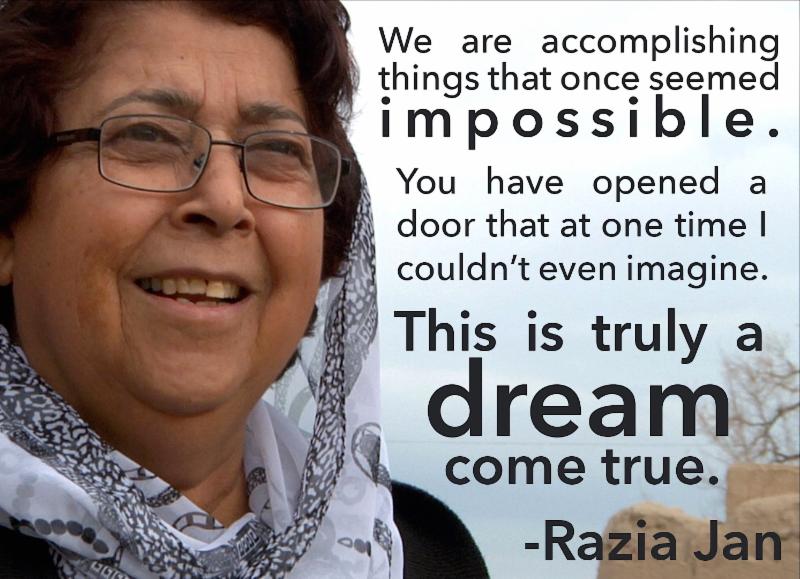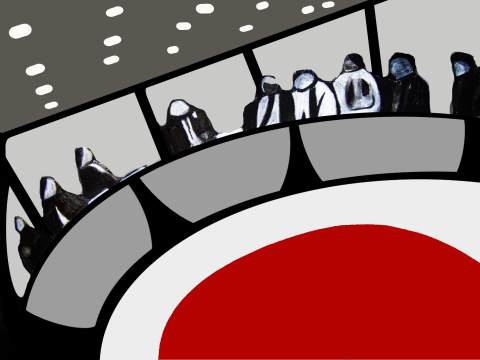
12 August 2015: Dietrich Bilger Presenting "Forum for Cities in Conflict"
Club Meeting Notes - August 12, 2015
Members in attendance: Dietrich Bilger, Sara Collins, Sue Heller, Walter Heller, Beatriz Hurwitch, Nancy Jacobs, Michael Johnson, Joe Kelley, Karen Kelley, JD Miller, Bart Nuboer, Joan Powers, Bob Schipul, Janet Schmitz, Lucille Sorrentino, Bernie Westerveld
Guests in attendance: Rich Fitzpatrick, Matthew Fitzpatrick, Reverend Ray Low, Sheila Gagnon and Edris Kelley
6:30 PM Meeting called to order
Pledge of Allegiance
Invocation by Bob Schipul
Four Way Test

The Rotary Moment was given this week by Club President Lucille Sorrentino.
An excerpt from a letter penned by Patti Quigley, Executive Director, Razi’a Rays of Hope:
“I am beyond thrilled to announce that the first women's college in rural Afghanistan has been fully funded and will break ground this month. Because of your unprecedented support, the Razia Jan Technical College will open in March 2016.
In fewer than six weeks, we raised more than $115,000 via Indiegogo to fund the college. Razia is overwhelmed by this success. "I am simply amazed by what our supporters have done in helping us to raise these funds. We are accomplishing things that once seemed impossible. This is the best thing for our students and the community. It is truly a dream come true."
Razia, who has been traveling the US to fundraise, just returned to Afghanistan to begin construction.
"Yet another of Razia's dreams for educa
ting girls in Afghanistan will come true, thanks to our most generous donors," said Susan A. Davis, chair of our board of directors, who was key to the campaign's success. "Despite the challenging Afghan environment, our Zabuli Education Center graduates will now have a real chance at leading meaningful, productive lives."
In addition to the many individual donors who helped make this dream a reality, we are deeply grateful to Susan Retik and her foundation Beyond the 11th for a significant gift that closed out the campaign as well as to the Rotary Clubs that gave so generously, particularly the Bartlesville Daybreak Rotary Club of Oklahoma.
The campaign's success was also due in large part to Beth Murphy of Principle Pictures and the GroundTruth Project, whose feature documentary What Tomorrow Brings tells the story of the Zabuli Education Center. "Afghanistan desperately needs female teachers and health care workers to serve women's needs and to set an example for the next generation," Beth said. "These girls are becoming a living demonstration of the power of education to change everything."
We are all taking a few moments to celebrate this extraordinary milestone. And then, we roll up our sleeves and begin construction on the life-changing college that YOU made possible.”
6:45 PM Dinner Break
7:15 PM Happy/Sad Bucks: Many Happy Bucks welcoming Bart back from his trip, wishing Bernie a Happy Birthday and welcoming our guest Rev. Ray Low.
Dietrich spoke of the District Governor’s involvement with the Youth Exchange Program and its importance. He encouraged club members to keep the program in mind if members know of families with children who may be interested in participating.
7:30 PM Dietrich Bilger: “Forum for Cities in Conflict,” Promoting Reconciliation through Resilience
From the FCT website, http://citiesintransition.net/
“FCT Mission:

The Forum for Cities in Transition brings together protagonists from divided societies. Its guiding principle is that one divided society is in the best position to help another.
Originating in a conference convened by South Africa President Nelson Mandela and the University of Massachusetts Boston in mid-1997, Professor
O’Malley brought together Northern Ireland’s most senior party negotiators with those involved from all parties that led to the historic 1994 settlement in South Africa that brought the end to apartheid.
Northern Ireland party leaders were effusive in their praise of the contributions of the South Africans, revealing that one divided society can well assist the peace-making work of another divided society.
The proposed premise is that those who have real experience of doing the ordinary (refuse collection, water treatment, public transportation, social housing) in extraordinary circumstances (physical segregation, zero-sum politics, blaming the out-group for societal ills) are in the best position to learn from others’ practical experiences.
A pilot conference was held in Boston in April 2009, and delegates agreed a set of basic principles, expressing its collective desire to continue and expand this work. The Forum for Cities in Transition was established; there have been four annual gatherings since, hosted by FCT member cities Mitrovica (2010), Derry-Londonderry (2011), Kirkuk (2012) and Kaduna (2013).
These annual meetings are an ongoing process, grounded in the tangible outcomes the each city delegation pledges at each event conclusion. These commitments are projects to further conflict transition and reconciliation, designed so that cities on higher rungs of conflict transformation assist those on lower rungs. This process is reciprocal, because those with particular expertise are reminded of how they attained it, while recognising there is assistance from fellow cities for their own uncompleted work.
There are 15 member cities of the Forum for Cities in Transition:
- Baghdad
- Belfast
- Derry-Londonderry
- Haifa
- Jerusalem
- Kaduna
- Kirkuk
- Mitrovica
- Mitte (Berlin)
- Mostar
- Nicosia
- Ramallah
- Sarajevo
- Srbrenica
- Tripoli (Lebanon)
The Forum is serviced by a joint Secretariat: the Moakley Chair (Boston) and the Northern Ireland Foundation (Belfast).”
The incentive for attendees is to live in a more peaceful, safe city with an improved economy.
The challenges of this are the logistics of the conference (ie location) and not only getting the protagonists from these cities to come together in one place physically, but to also engage in conversation with each other in a productive way. The conference’s sustainability is also of concern, as attendees need to be invested in coming to make progress.
Dietrich also presented a concept paper by Padraig O’Malley on the “Global Forum for Marginalized Youth,” a concept in which representative youth from various poverty-stricken regions worldwide would come together to discuss their economic issues and realize they are not alone. In this forum, the representatives could speak about their individual situations, gain different perspectives and report back in their cities with new ideas. Dietrich has encouraged members to come forward with any ideas on how to progress this initiative forward.
8:15 PM Meeting Adjourned


